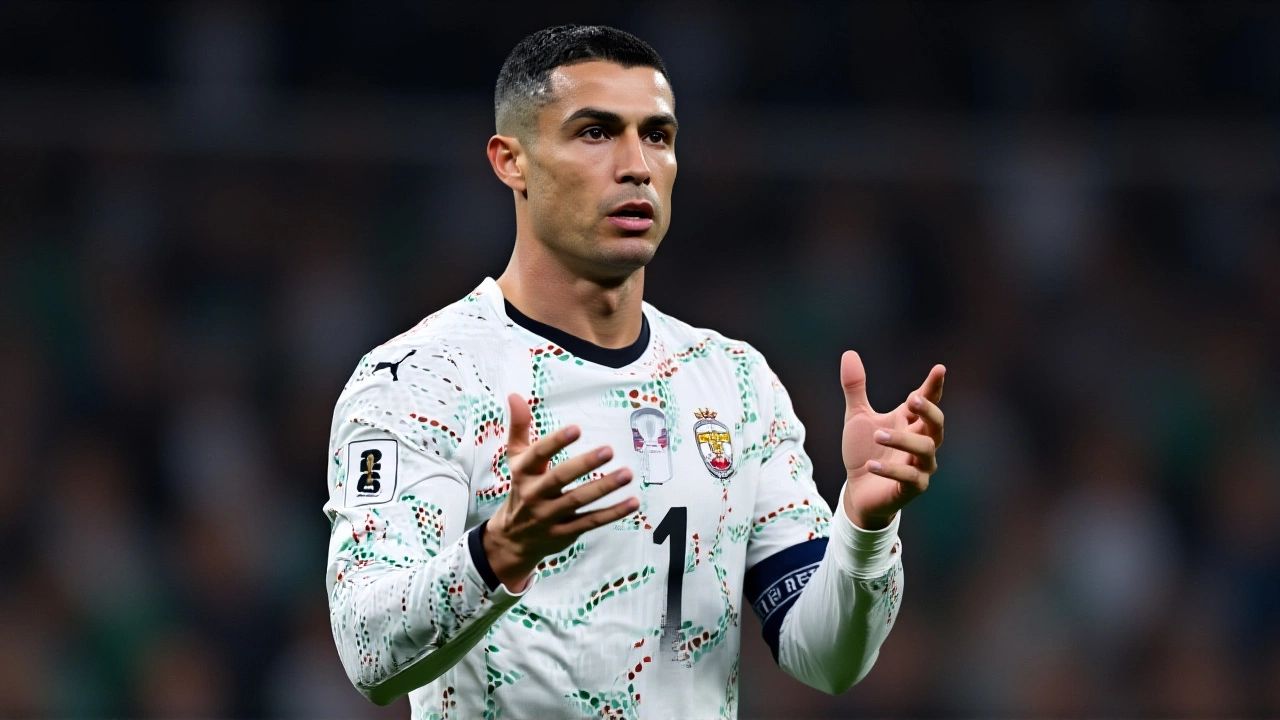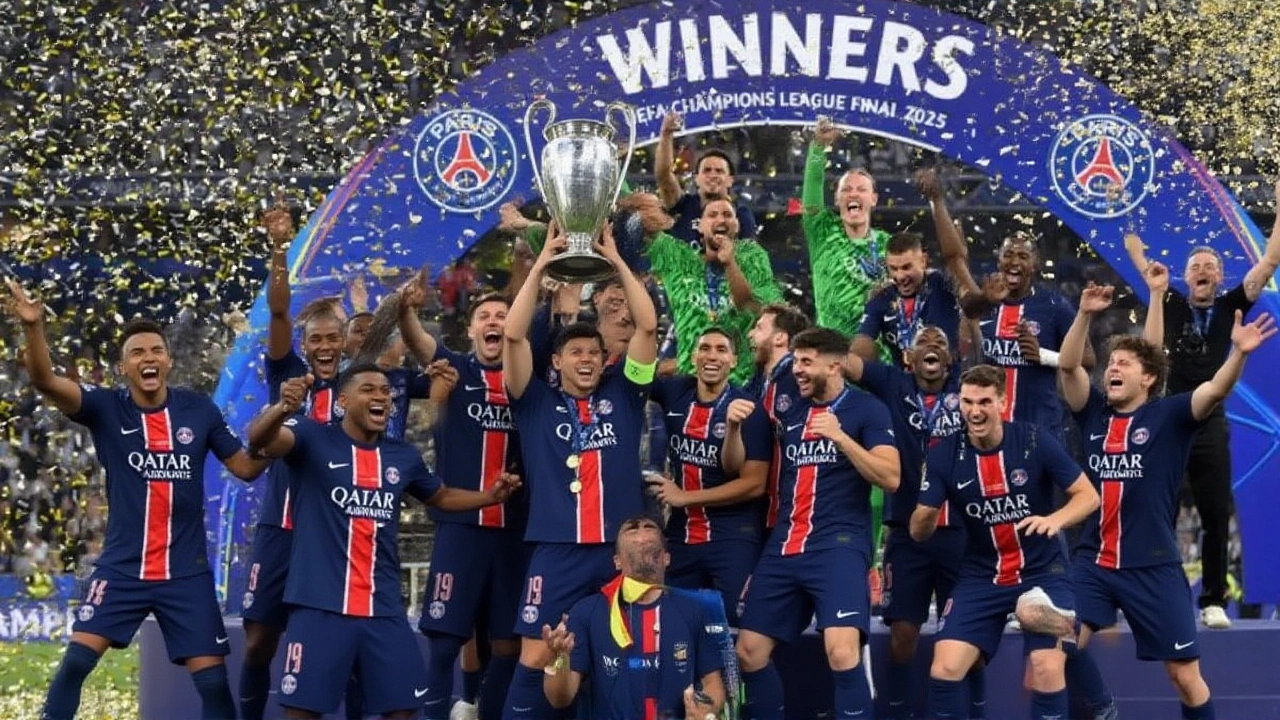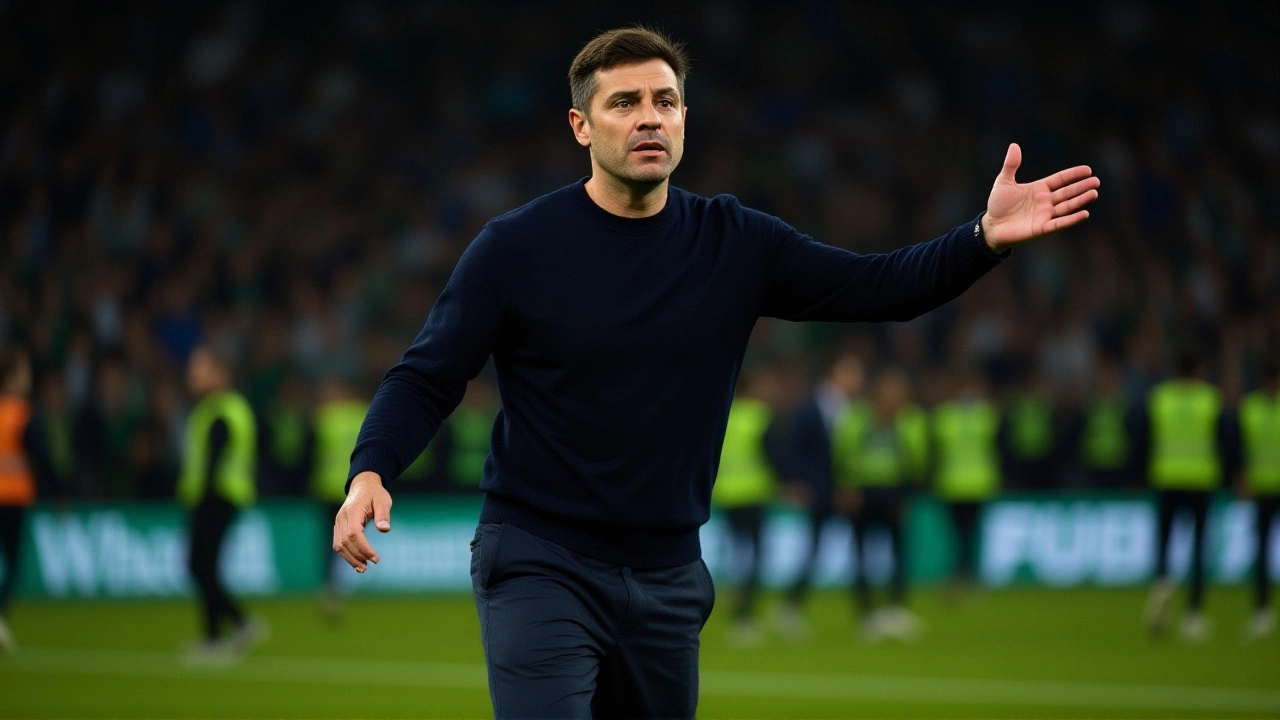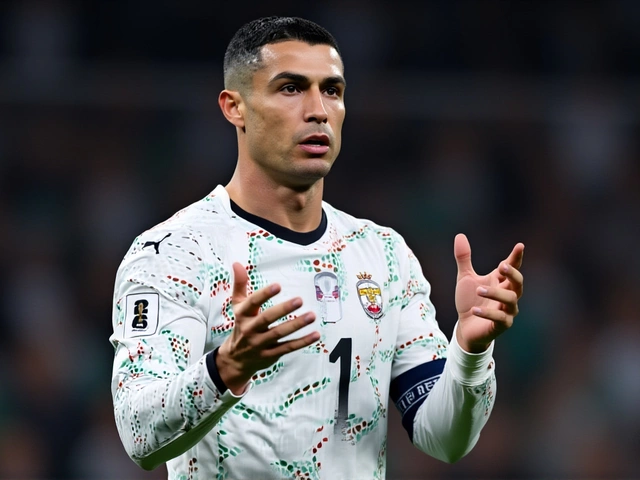Ronaldo to Play in 2026 World Cup Opener Despite Suspended Red Card Suspension

When Cristiano Ronaldo elbowed Dara O'Shea in the face during Portugal’s 2026 World Cup qualifier against the Republic of Ireland on November 13, 2025, at Aviva Stadium in Dublin, he didn’t just risk his team’s qualification—he risked his legacy. The red card, his first straight red in 226 international appearances, should have meant missing the opening match of the 2026 World Cup. But FIFA’s disciplinary ruling turned that expectation on its head. Ronaldo will play on June 15, 2026, at MetLife Stadium in East Rutherford, New Jersey, even though he was handed a three-game suspension. Only one game was served. The other two? Suspended. For now.
How a Suspension Became a Get-Out-of-Jail-Free Card
FIFA’s decision, announced on November 25, 2025, relied on Article 27 of its Disciplinary Code, which allows for conditional suspensions. Ronaldo served the first match of his ban during Portugal’s 9-1 thrashing of Armenia on November 16, 2025, at Estádio da Luz in Lisbon. The remaining two games were suspended for one year, ending on November 13, 2026. If Ronaldo commits another offense of “similar nature and seriousness” before then, the suspension kicks in immediately. But if he stays clean? The ban vanishes. That’s the twist. No other player punished for violent conduct this cycle got this leniency. Dara O'Shea, the 25-year-old Ireland defender who was struck, spent three days in the hospital with facial bruising. He didn’t get a public apology. Ronaldo got a second chance.Controversy Builds as Comparisons Surface
ESPN reported on November 26, 2025, that two other players—Argentina’s Leandro Paredes and Brazil’s Éder Militão—received full, unsuspended bans for similar elbowing incidents in their qualifiers. Both missed key matches. Yet Ronaldo, the five-time Ballon d’Or winner, was treated differently. “It’s not about who you are,” said former FIFA ethics officer John Collins in a private interview. “It’s about consistency. When you start making exceptions for global stars, you erode the foundation of the game.” The controversy deepened when Sport Bible reported on November 27, 2025, that legal teams from the Irish Football Association were reviewing the ruling for potential breaches of FIFA’s own equality guidelines. “This isn’t just about fairness,” said Irish FA legal counsel Eoin O’Connor. “It’s about precedent. If you can buy your way out of a suspension with fame, what’s the point of the rules?”
The White House Meeting That No One Asked For
Six days before FIFA’s ruling, on November 19, 2025, Ronaldo attended a high-profile dinner at the White House in Washington, D.C., alongside U.S. President Donald Trump and Mohammed bin Salman, the Crown Prince of Saudi Arabia and owner of Ronaldo’s club, Al-Nassr F.C.. The meeting, framed as a “cultural diplomacy” event, drew immediate scrutiny. Critics noted that Ronaldo’s global brand—worth an estimated $1 billion—makes him uniquely valuable to FIFA’s commercial partners. Was the suspension softened because of optics? Because of sponsorship? Because of the Saudi connection? FIFA has refused to comment on timing or external influence. But the coincidence is hard to ignore.What This Means for Portugal—and the World Cup
Portugal’s opening match against the United States on June 15, 2026, will be Ronaldo’s sixth World Cup appearance, a record no other player has reached. At 39, he’s playing for history, not just glory. He’s already the all-time top scorer in international football with 128 goals. But this ruling could overshadow his legacy. Fans in Portugal are divided. Some call it justice for a legend. Others say it’s a betrayal of the game’s spirit. The suspension’s conditional nature creates a ticking clock. If Ronaldo gets booked in Portugal’s second group stage match on June 20, or commits any act of violent conduct before November 13, 2026, he’ll be suspended for the next two official games. That could mean missing the Round of 16—or worse, the quarterfinals. It’s a high-wire act.
Historical Context: Has This Ever Happened Before?
FIFA has used conditional suspensions before—most notably in 2014 when Spain’s Sergio Ramos had a two-match ban suspended after a headbutt. But Ramos wasn’t a global icon with a $1 billion brand. He wasn’t attending dinners with heads of state. And crucially, he didn’t have a 226-cap international record to protect. This case is unprecedented in scale, visibility, and political weight. The broader question lingers: Is football’s disciplinary system still credible when it treats superstars differently? Or has the game become too big to punish its biggest names?Frequently Asked Questions
Why wasn’t Ronaldo suspended for the full three games?
FIFA applied Article 27 of its Disciplinary Code, which allows suspensions to be partially suspended if the player has no prior serious offenses in the past year. Ronaldo served one match against Armenia, and the remaining two were suspended for one year. If he commits a similar offense before November 13, 2026, those two games will be enforced immediately. This is rare for a player of his profile and has drawn criticism for inconsistency.
How does this affect other players who received similar red cards?
Players like Argentina’s Leandro Paredes and Brazil’s Éder Militão received full, unsuspended bans for comparable elbowing incidents. Their suspensions were enforced without probation. This discrepancy has triggered accusations of double standards, with the Irish Football Association reportedly preparing legal challenges against FIFA for violating its own principles of equal treatment under the rules.
Could Ronaldo still be banned before the World Cup?
Yes. If Ronaldo commits another violent conduct offense—such as an elbow, kick, or intentional foul—in any official match for Portugal before November 13, 2026, the suspended two-game ban will activate immediately. That could mean missing Portugal’s next match, even if it’s in the knockout stage. The suspension isn’t gone—it’s just on hold, waiting for another mistake.
What role did the White House meeting play in the decision?
FIFA has denied any connection between Ronaldo’s White House dinner with Donald Trump and Mohammed bin Salman and the disciplinary ruling. But the timing—six days before the decision—has fueled speculation. With Ronaldo’s club, Al-Nassr, owned by Saudi Arabia’s Public Investment Fund, and the U.S. co-hosting the 2026 World Cup, the political and commercial stakes are unusually high. No official link exists, but the coincidence has damaged FIFA’s credibility.
Is this a precedent for future World Cup suspensions?
It could be. If FIFA doesn’t clarify its criteria for conditional suspensions, future cases involving high-profile players may follow this model. Critics warn it sets a dangerous tone: fame and commercial value can outweigh discipline. FIFA’s next disciplinary panel, expected in early 2026, will be closely watched to see if they reaffirm this approach—or backtrack to restore fairness.
What happens if Ronaldo breaks the rules after November 13, 2026?
After November 13, 2026, the suspended portion of Ronaldo’s ban is automatically revoked under FIFA’s ruling. Any new offense after that date would be treated as a standalone violation, subject to a fresh disciplinary review. He would not carry forward the old suspension—but he’d still face consequences for the new act, potentially including another ban.
